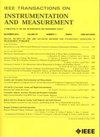GNSS Spoofing Mitigation Based on Code-Carrier Difference Pair Pseudorange Correction
IF 5.9
2区 工程技术
Q1 ENGINEERING, ELECTRICAL & ELECTRONIC
IEEE Transactions on Instrumentation and Measurement
Pub Date : 2025-09-12
DOI:10.1109/TIM.2025.3609375
引用次数: 0
Abstract
Global Navigation Satellite System (GNSS) is vulnerable to spoofing attacks due to its open signal structure. Studying spoofing mitigation methods is, therefore, crucial for ensuring the security of GNSS-based services. However, current spoofing mitigation techniques rely on code-phase estimation of multiple correlators or the assistance of external information, which is costly and lacks practicality. Therefore, we propose a new spoofing mitigation method based on code-carrier difference (CCD) for pseudorange (PR) bias estimation and correction. The method effectively leverages the inherent correlation between carrier and code to construct CCD based on phase, which is then converted into PR bias. This enables effective prediction of PR deviations induced by spoofing. Notably, the technique achieves spoofing mitigation without requiring precise estimation of code-phase offset. The results show that the proposed method can effectively reduce the impact of spoofing signals to around 20 m in scenarios with low power advantage, as well as in static/dynamic and time/positioning spoofing scenarios. In the later stage of spoofing, the proposed algorithm reduces the resolution error by up to 97.0% in all scenarios and maintains a stable and smooth position, velocity, and time (PVT) solution performance throughout the whole time period. The proposed algorithm performs well in terms of mitigation effect, accuracy, robustness, and the smoothness of PVT solution, providing GNSS receivers with an efficient, lightweight, and reliable anti-interference solution.基于码载波差分对伪距校正的GNSS欺骗抑制
全球卫星导航系统(GNSS)信号结构开放,容易受到欺骗攻击。因此,研究减缓欺骗的方法对于确保基于gnss的业务的安全至关重要。然而,目前的欺骗抑制技术依赖于多个相关器的码相位估计或外部信息的辅助,成本高且缺乏实用性。因此,我们提出了一种基于码载波差分(CCD)的伪距(PR)偏差估计和校正的欺骗抑制方法。该方法有效地利用载波和编码之间的固有相关性来构建基于相位的CCD,然后将其转换为PR偏置。这使得能够有效地预测由欺骗引起的PR偏差。值得注意的是,该技术在不需要精确估计代码相位偏移的情况下实现了欺骗缓解。结果表明,在低功耗优势场景下,以及静态/动态和时间/定位欺骗场景下,该方法可以有效地将欺骗信号的影响降低到20 m左右。在欺骗后期,该算法在所有场景下的分辨率误差可降低97.0%,并在整个时间段内保持稳定、平滑的位置、速度和时间(PVT)求解性能。该算法在PVT解的抑制效果、精度、鲁棒性和平滑性等方面均表现良好,为GNSS接收机提供了一种高效、轻量化、可靠的抗干扰方案。
本文章由计算机程序翻译,如有差异,请以英文原文为准。
求助全文
约1分钟内获得全文
求助全文
来源期刊

IEEE Transactions on Instrumentation and Measurement
工程技术-工程:电子与电气
CiteScore
9.00
自引率
23.20%
发文量
1294
审稿时长
3.9 months
期刊介绍:
Papers are sought that address innovative solutions to the development and use of electrical and electronic instruments and equipment to measure, monitor and/or record physical phenomena for the purpose of advancing measurement science, methods, functionality and applications. The scope of these papers may encompass: (1) theory, methodology, and practice of measurement; (2) design, development and evaluation of instrumentation and measurement systems and components used in generating, acquiring, conditioning and processing signals; (3) analysis, representation, display, and preservation of the information obtained from a set of measurements; and (4) scientific and technical support to establishment and maintenance of technical standards in the field of Instrumentation and Measurement.
 求助内容:
求助内容: 应助结果提醒方式:
应助结果提醒方式:


